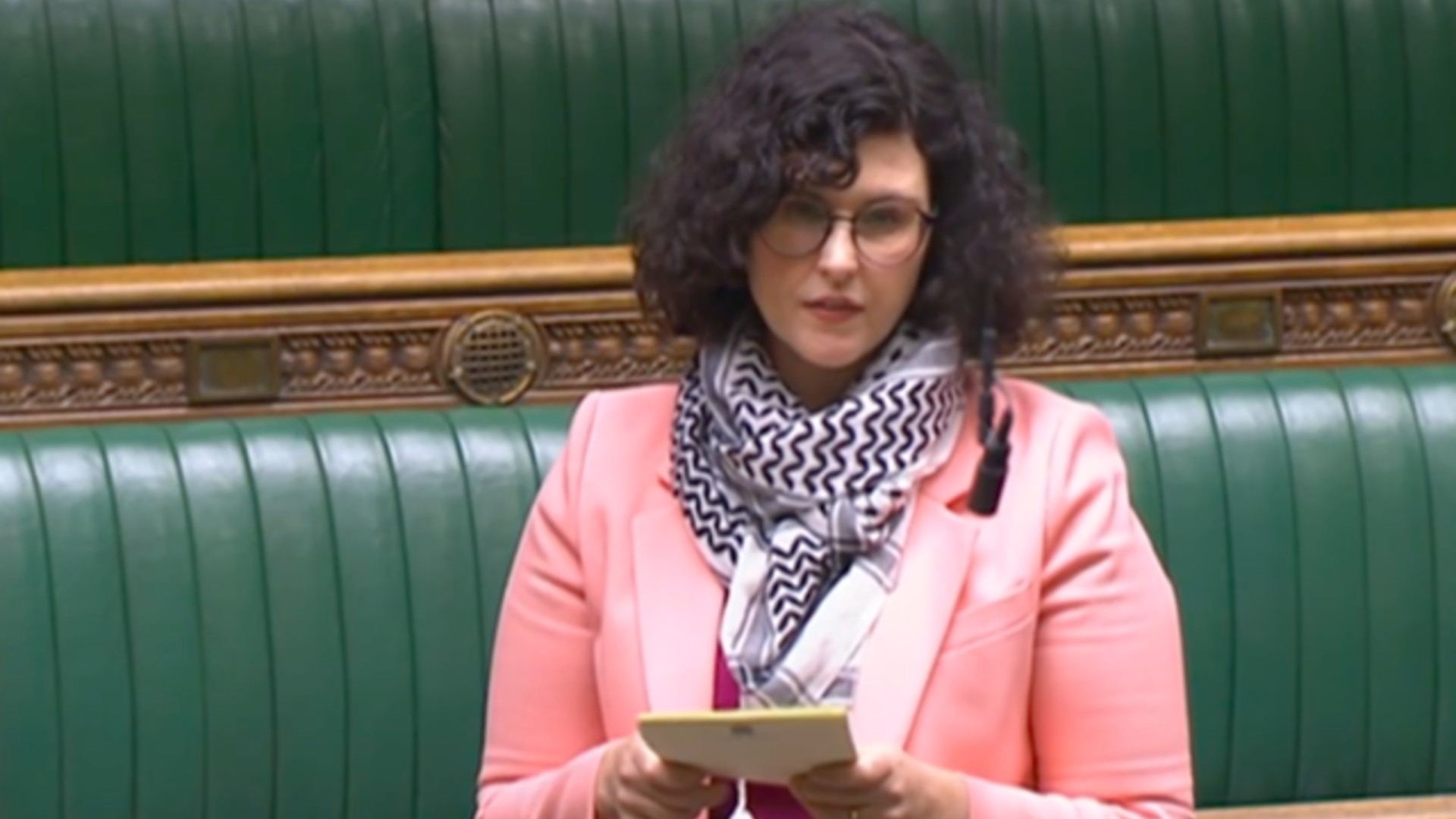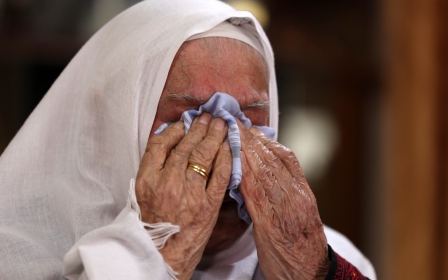Nakba: British-Palestinian MP files motion to commemorate 75th anniversary

Layla Moran, the first and only British MP of Palestinian descent, has tabled a motion commemorating the 75th anniversary of the Nakba.
Moran, the foreign affairs spokesperson for the Liberal Democrat party, tabled the early day motion last week, and will present it to parliament on Monday.
Each year, on 15 May, millions mark the Nakba, or catastrophe, commemorating the ethnic cleansing of Palestine to make way for the creation of Israel in 1948.
"This House notes that Monday 15 May 2023 marks 75 years since 750,000 Palestinians were expelled or fled from Palestine in what is now known as the Nakba," the motion reads.
"[It] notes that there are now over five and a half million Palestinian refugees worldwide and supports these refugees' rights in line with international law."
New MEE newsletter: Jerusalem Dispatch
Sign up to get the latest insights and analysis on Israel-Palestine, alongside Turkey Unpacked and other MEE newsletters
The motion calls on the UK government to continue to fund the UNRWA, the UN agency for Palestinian refugees, and "immediately recognise a Palestinian state" on the basis of a two-state solution.
"I take it upon myself, as the next generation, to carry Palestine in my heart and do whatever I can to safeguard its future," Moran, whose own family was forced to flee Jerusalem during the Nakba, told Middle East Eye.
"That’s why I presented my Nakba Commemoration Bill earlier today. I am calling on the government to start a new chapter, commemorating this catastrophe and recognising our historic obligation to the region.”
'Ongoing occupation'
Early-day motions are submitted by MPs to be discussed in the House of Commons, usually to draw attention to specific events or campaigns.
The motion "further recalls the 800,000 Jews who fled or were expelled from Arab states from 1948 onwards [and] further notes the ongoing occupation of Palestinian territories in the West Bank and Gaza by the Israeli authorities," the text adds.
A day before Britain's 25-year "mandate" over Palestine officially expired, on 14 May 1948, the State of Israel was unilaterally declared, leading to a war with Arab armies, who had entered Palestine to push back Zionist military advances.
By the end of the war in July 1949, Zionist forces had killed 13,000 Palestinians, destroyed and depopulated around 530 villages and towns, committed at least 30 massacres, and expelled 750,000 people.
Israel had captured 78 percent of historic Palestine, while the remaining 22 percent was under Arab control.
More than 6,000 Israeli Jews, including 4,000 soldiers and 2,000 civilians, were killed. Around 2,000 troops from Arab countries were also killed in the war.
Previously classified diplomatic cables, seen by Middle East Eye at the National Archives in London, show that Britain was well aware of mass killings and displacement of Palestinians, but London would play down the scale of the events and refuse to intervene.
Middle East Eye delivers independent and unrivalled coverage and analysis of the Middle East, North Africa and beyond. To learn more about republishing this content and the associated fees, please fill out this form. More about MEE can be found here.




